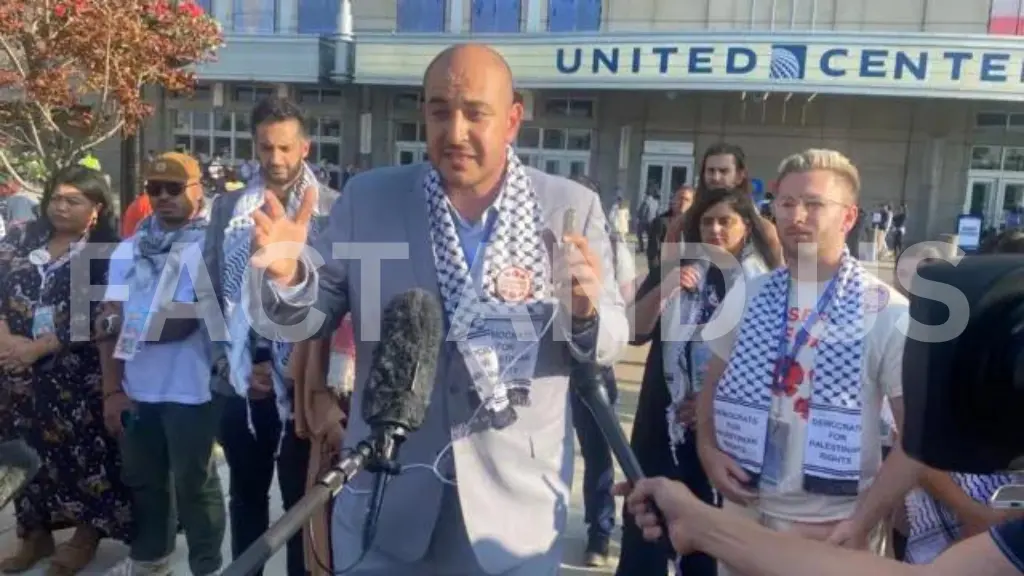A new development within the United States’ politics has emerged when the Democratic Party has come under fire and controversy over the move to deny a Palestinian speaker’s slot at a major party gathering following a request from Gaza protesters. It shows the tensions still ongoing in terms of US foreign policy and domestic advocacy on the Israeli-Palestinian conflict.

This came following a call from a coalition of activist groups and protesters who have been calling for the international community to recognize Palestinian voices and to offer better support to these voices within the international sphere. The Democratic Party is a large political institution that they demanded should host a Palestinian speaker so that this Palestinian speaker may voice the issue that surrounds the Gaza conflict, as well as stress the humanitarian situation on the ground.
However, party leaders have rejected this request because of fear of increased fragmentation and the intricacy of squaring different viewpoints within the party. “We are working to engage international issues that are both diplomatic and balanced,” a Democratic spokesperson commented. “We respect the zeal and concerns of the protesters. Our interest is in the constructive engagement that considers both sides and maintains peace.”
The protests this week have been largely peaceful, except for a much smaller, unsanctioned rally outside the Israeli consulate that ended in 56 arrests. “This has been a disastrous decision by the Democratic leadership to deny a bare-minimum ask that we requested weeks ago, prior to the convention,” said Layla Elabed, one of the uncommitted national movement co-leaders. The Harris campaign revealed to the that campaign manager Julie Chavez Rodriguez met with uncommitted movement leaders in recent days.

“There have been a number of speakers who have spoken about the war in Gaza and the need to secure a ceasefire and hostage deal. You will continue to hear that message,” a spokesperson said.
Uncommitted delegates were selected in state Democratic primaries earlier this year. President Joe Biden won an overwhelming share of primary voters, but pro-Palestinian activists urged people to vote “uncommitted” and similar options in a number of states.
Enough Democratic voters apparently did so to send 30 delegates to the convention in Chicago, out of a total of more than 2,400 delegates. Israel’s war in Gaza has divided the Democratic Party, but has largely been avoided as a topic of discussion during the DNC this week. The uncommitted protesters said they had given the Harris campaign a list of several potential Palestinians who could speak at the conference.
The Democratic Party’s stance reflects a broader challenge faced by political organizations when navigating sensitive and contentious global issues. Balancing advocacy and diplomacy while addressing the diverse concerns of constituents requires careful consideration, and in this case, the decision has revealed the difficulties inherent in addressing the Israeli-Palestinian conflict within a domestic political context.
Uncommitted activists said they were informed that the focus of the convention was on the vice-president, as she was preparing to give the biggest speech of her life. The delegates said that for two months, they have been asking to have a Palestinian speaker address the crowd at the convention. “We’re going to have to have a lot of difficult conversations with the vice-president and her team after this,” said Abbas Alawieh, an uncommitted delegate from Michigan. “We are going to have to take stock of what happened.”
Gaza protesters
Despite the huge protests outside the arena doors, the war in Gaza has been mentioned by only a few speakers during the four-day programme. Mr Alawieh said the goal of having a Palestinian speaker at the convention was about “forcing” the Democratic Party to “create space for talking about Palestinian human rights”.

As the situation in Gaza evolves, so will the debate over how best to engage with and address the concerns of different international actors. The response of the Democratic Party to the demand from the protesters gives insight into ongoing tensions and challenges in U.S. foreign policy and advocacy as well as the wider discourse on human rights and justice on the global stage.
For now, the rejection is fueling further discussions around the role of political parties toward international issues .
Stay connected with Fact and US for more such news.
